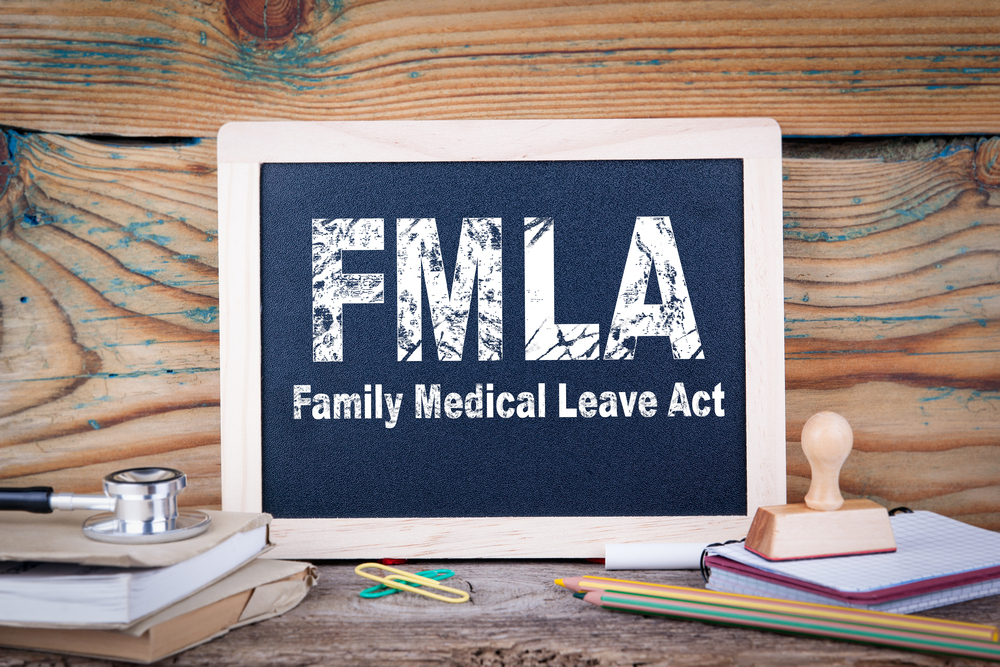In our latest installment of Ask the Expert, brought to you by the team of industry experts at HR Hero®, we look at a recent question from a subscriber regarding FMLA regulations and the coverage provided to employees who are caring for family members. See what the experts had to say.
Q: An employee’s parent is being relocated to another hospital for treatment of COVID-19 complications and as a result, they will be to driving another family member to that hospital for extended care. As this drive will require the employee to miss a day of work (possibly more), would this scenario fall under FMLA coverage?
A: The federal Family and Medical Leave Act (FMLA) allows eligible employees to take leave when they are needed to care for a parent, spouse, or child who has a serious health condition (See 29 USC 2612(a)(1)). According to FMLA regulations, “needed to care for” may encompass both physical and psychological care. For example, it includes situations where, because of the serious health condition, a parent is unable to care for his own basic medical, hygienic, or nutritional needs or is unable to transport himself to the doctor. An employee may take leave to provide “psychological comfort and reassurance” for a parent who is receiving inpatient or home care. Although the FMLA and the regulations do not define psychological comfort and reassurance, courts could interpret the term to mean that the availability of others to provide psychological comfort or reassurance to the family member is irrelevant.
A “parent” is defined broadly under the FMLA to include a biological, adoptive, step, or foster parent of an employee or an individual who stood in loco parentis to the employee when the employee was a son or daughter. See 29 C.F.R. § 825.122. “Parent” does not include an employee’s parents-in-law. There is no requirement that an employee be the primary care provider for a sick or injured parent.
Finally, a “serious health condition” is defined as any illness, injury, impairment, or physical or mental condition that involves (1) any incapacity or treatment connected with inpatient care, (2) a period of incapacity of more than three calendar days and continuing treatment by a healthcare provider, (3) continuing treatment by a healthcare provider for a chronic long-term condition that is incurable or so serious that if untreated would likely result in incapacity of more than three days, or (4) prenatal care.
It can be difficult for employers to identify and designate covered leave when an employee needs to care for a parent who is dealing with COVID-19 and/or its related effects. COVID-19 may or may not be considered a serious health condition under the FMLA, depending on the nature and severity of symptoms experienced. For example, the seasonal flu typically is not considered a serious health condition without complications. Similarly, COVID-19 may meet the FMLA’s eligibility criteria if an individual’s symptoms are so serious they include a high fever, difficulty breathing, and/or treatment by a health care provider.
Even if an employee knows that she is entitled to FMLA leave to care for her parent, the truth is that many employees simply don’t think of it. That’s why it’s important for the employer to require and obtain medical certification from the employee before granting or denying FMLA leave.
First, the best way for the employer to navigate any hurdles is to meticulously follow the FMLA’s medical documentation procedures and have the eligible employee provide a written explanation of why she needs time off from work. The medical certification should verify that the employee’s father is suffering from a serious health condition as a result of, or in relation to, COVID-19. Employers in North Dakota generally should use the federal FMLA medical certification form provided by the U.S. Department of Labor, available online at https://www.dol.gov/sites/dolgov/files/WHD/legacy/files/WH-380-F.pdf.
Second, the employer should obtain confirmation of the familial relationship between the employee and the sick/injured individual. This confirmation can be a simple statement from the employee that the sick/injured individual is her parent or a legal document establishing the connection. Whatever documentation the employer requires, it should be consistent to avoid any discrimination claims.
Going forward, the employer should suggest the employee try to get medical certification that will not only support the need for her leave, but also better identify when she is needed to care for/be with her parent. This certification can help the employer assess if any future absences are covered by the FMLA.
The employer should remember that on top of its leave requirements, the FMLA prohibits employers from retaliating against employees for taking protected leave. Similarly, other laws may come into play when an employee is entitled to protected leave. For example, employees with eldercare responsibilities have sued their employers under the federal Americans with Disabilities Act (ADA), the Employee Retirement Income Security Act (ERISA), and even Title VII of the Civil Rights Act of 1964. Therefore, issues concerning eldercare must be carefully considered before an employer takes any sort of adverse action against an employee who acts as caregiver to her parent.
Additional information on the FMLA and leave to care for a parent with a serious health condition is available from the U.S. Department of Labor Fact Sheet #28c, online at https://www.dol.gov/sites/dolgov/files/WHD/legacy/files/whdfs28C.pdf. Information on this topic can also be found on HR.BLR.com, under Library, Benefits and Leave Category, Leave of Absence (FMLA) Topic Analysis, online at https://hr.blr.com/analysis/Benefits-Leave/FMLA-Leave-of-Absence/North-Dakota. Note that North Dakota does not provide any additional family and medical leave or sick leave requirements.
Because of the potential for violations of the FMLA and the possible difficulty in determining whether the employee’s parent has a qualifying serious health condition, you should discuss this matter with an attorney.
Ask the Expert is a service provided to subscribers of BLR®’s HR Hero product, where experts are ready with answers to your organization’s unique questions surrounding HR compliance. To learn more and request a demo of HR Hero, click here.

